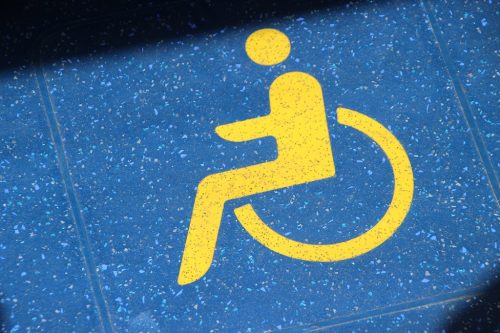
Stakeholder group calls on Government to give drivers powers to remove a passenger from the bus if they refuse to vacate a wheelchair space
The Department for Transport (DfT) has said that it will introduce new measures to ensure wheelchair users can safely access on-board wheelchair spaces on buses.
The statement follows a Supreme Court judgment in the Paulley vs FirstGroup PLC case in January 2017 concerning the ‘reasonable adjustments’ which bus operators should provide for passengers in wheelchairs, and will be aimed at challenging the barriers still faced by some people with disabilities when using bus services.
Transport Minister, Nusrat Ghani, said: “Passengers with disabilities must have the same opportunities to travel as other members of society, and it is essential that the services they rely on are accessible and work for them.
“Where people live, shop, go out or park their car should not be determined by their disability and accessible transport networks are vital if we are to support those with disabilities to live independent lives and fulfil their potential.”
The implications of the Supreme Court’s judgement were assessed by a stakeholder group called the ‘Task and Finish Group on the Use of Wheelchair Spaces on Buses.’ The group’s report stated: “Our view is that drivers need to play an active role in ensuring that the wheelchair space is made available for passengers in wheelchairs, which includes requiring other passengers to move where necessary, but that drivers also need more powers than they have currently to enable them to do this effectively.”
The group made four specific recommendations:
- That PSV regulations are amended to enable drivers to remove passengers from the bus who unreasonably refuse to move when requested from the wheelchair space;
- The associated guidance is amended to better reflect the behaviours expected from drivers and passengers with respect to use of the wheelchair space;
- Further work is conducted to consider how best to raise public awareness of the behaviours expected from passengers with respect to the wheelchair space, for example a public awareness campaign or improved signage on buses; and
- Conditions of carriage and disability awareness training best practice guidance are updated to reflect the fact that passengers will be required to move.
The DfT said it will continue to work closely with groups and stakeholders as plans progress. This will include drivers, disabled people and members of the public travelling with young children.
Keith Richards, Chairman of Disabled Persons’ Transport Advisory Committee, said: “The committee welcomed the speed of the DfT’s response to the Supreme Court’s judgement on the use of wheelchair spaces.
“Fighting for what is essential space should not be part of the day-to-day experience wheelchair users have when using buses. We hope the department will maintain its pace into the implementation phase, to ensure that wheelchair users no longer face these challenges or have to fight for facilities provided for them in law.
“Without a greater degree of certainty over the use of the space, confidence in using public transport will be difficult to achieve.”
Reacting to the announcement, CPT Chief Executive, Simon Posner, told CBW: “The UK bus fleet is among the most accessible in the world and bus operators want all passengers to be able to use their vehicles safely and in comfort. CPT is pleased that the Government intends to clarify what action bus drivers are able to take to ensure the needs of passengers in wheelchairs and other bus users are met.
“We agree with the Task & Finish Group that the wheelchair space on buses should be available to those who need it, and we look forward to working with all parties to ensure that the package of measures proposed is balanced and fair to passengers and bus drivers alike.”

